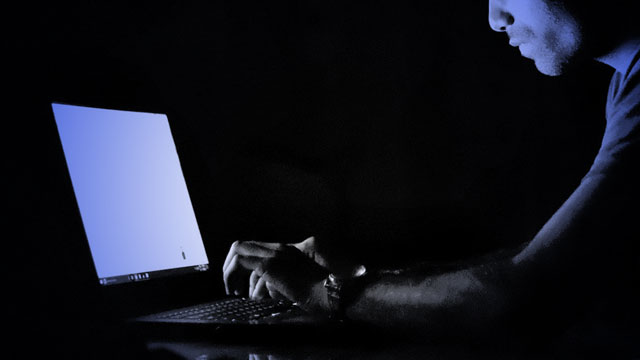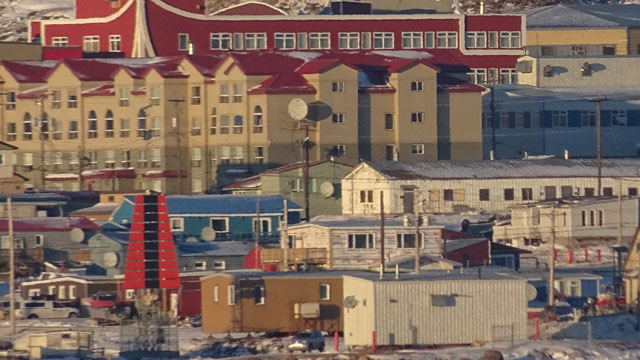
Warning: This story contains disturbing details of a sexual nature and strong language which some readers may find offensive.
Statistics Canada says Nunavut’s criminal harassment rate is 3.6 times the national average, sexual assault is 7.2 times the national average, and indecent or harassing communication is 8.9 times the national average.
And the place where all of these disturbing statistics come together for Nunavut’s women is often online – and the abuse usually comes from people they know.
Take the case of Mia (not her real name) – an Inuk woman from a small Nunavut community. She was in a relationship with a man from her community that ended badly.
Years later, she found out how her former partner tried to get his revenge.
“I recently got a message from one of my relatives. She was very upset with something her boyfriend possessed – nude pictures of me. I asked for his name and if he still had the pictures, to send them to me,” Mia explained.
Sure enough, they were nude photos her ex-boyfriend shared after the break-up. What was even more disturbing was how they were being distributed.
“I found out there are group chats within the community where people are exchanging and trading nudes they have received. I took all the information and names I have found out to the police,” she said.
After doing some more digging, Mia learned just how pervasive her photos had become and how she was the one being blamed.
READ MORE:
Uvangalu: Nunavut’s answer to the Me Too movement
Report reveals racialized policing in Inuit Nunangat – calls for ‘decolonized’ approach
“I made a public post about my situation, because I was receiving harassment from men and women from the communities about my pictures,” she said.
“I have seen screenshots from conversations where they are lying to other men that they received the nudes for money and alcohol; I do not even drink and do not appreciate being lied about.”
The harassment continued, she said, for daring to speak out against the person who distributed her photos.
“There was some backlash where people who knew my ex-partner were trying to say the situation I’m going through is not real. I have heard people saying that I leaked the photos myself; that I did this myself to sabotage someone else. All to save the reputation of another individual,” said Mia.
“Our communities protect abusers, it doesn’t matter how mild or severe they hurt us.”
After going to police, being harassed by both men and women, and having her intimate photos traded around her community like hockey cards, Mia figured the indignity was over.
She was wrong – it was about to go international.
“A number of months after I had found out my nudes were leaked, a friend of mine found my pictures on a Pornhub profile,” said Mia. “I was very devastated that my pictures were on such a huge platform for everyone to see. I developed bad anxiety.
“It is scary not knowing who all seen you.”
(‘This guy has created multiple profiles in order to harass me,’ one woman told APTN. Photo: APTN)
APTN News learned about another Inuk woman who was able to get photos removed from Pornhub, because the pictures were taken when she was under age.
The final report of the National Inquiry into Missing and Murdered Indigenous Women and Girls tackles this issue.
It describes how generations of portraying Indigenous women as hyper-sexualized has made it easier for people to abuse them.
One of the report’s recommendations is “to end practices that perpetuate myths that Indigenous women are more sexually available and less worthy than non-Indigenous women because of their race or background.”
The commission draws a direct line from early contact with Europeans to the attitudes of modern day showing how hyper-sexualization helped create a Canada where sexual crimes against Indigenous women happen at a much higher rate than the rest of the population.
Checking tags on Pornhub shows how the platform reinforces the report’s conclusion.
The word Inuit shows up seven times in its extensive video collection, but suggests other tags the viewer may be interested in like “Eskimo girl” and “Native.”
It is impossible to tell how many cases are like Mia’s – where the pictures are posted without consent – but she surely isn’t alone.
Not all online abuse against Inuit women happens behind the scenes.
A Grade 9 teacher in Coral Harbour, Nunavut, was fired in 2017 for posting a photo to Facebook of his Inuit ex-girlfriend who is muslim.
The poster photoshopped the woman’s head on an ISIS executioner’s face. Because the woman also worked at the school, some parents took the threat of Islamic violence seriously enough to keep their students home from school.
The man who posted the photo defended himself at the time, calling the photoshop “art”, “peaceful self-defence”, and “intelligence in the face of injustice and deception” on a local Facebook group.
The Ontario College of Teachers later fined him $10,000 and revoked his teaching licence for a pattern of behaviour going back to 2013-14 where he posted inappropriate photos of a student and her mother on Facebook.
For every case that sees the light of day, many more go unreported.
Kim (also not her real name) had just gotten out of a bad relationship, and the Inuk woman was looking to meet someone new.
She signed up for a popular dating site to meet more people.
What it did was expose her to a determined stalker who wouldn’t take no for an answer.
“This guy has created multiple profiles in order to harass me. He is making me actually nervous because of the multiple times he’s done this,” explained Kim.
Kim showed the messages she received to APTN.
Page after page of the man insisting he knew her, but didn’t.
After getting caught in the lie, he turned it back on Kim, writing,“Why are you mean to me? I’m just trying to be friendly.”

(Some believe stopping the tide of harassment against women is up to men.)
A few more rounds of, “No, stop messaging me” and the alleged harasser replied with, “I’m just trying to be me and be nice to meet, but you keep threatening me.”
Following her break-up, Kim got herself into therapy and says it helped.
“Since the therapy and knowing my rights and freedoms, I have so much more confidence reporting these men that harass and try to bully their way into my life. This kind of stuff happens to me almost weekly, mostly from online dating sites,” she said.
Inuksuk Mackay comprises half of the world-renowned throat-singing duo PIQSIQ.
She can recall experiences of sexual harassment dating back to when she was just 11 years old.
“By the time I had become an adult, I’d had my boundaries crossed so many times that it was hard to believe they still existed or that I had any right to them at all,” she explained.
Being a high-profile performer puts her in the public eye, and she gets her share of unsolicited attention from men online.
“Enter Facebook, the golden era of, ‘Hey, I said Hi. Hey girl. Fuck you. Bitch. Never mind. You’re ugly and no one would fuck you anyway’ and unsolicited dick pics,” said Mackay.
Mackay is the mother of two sons, and thinks the only way to reverse this online tide of harassment against Inuit women is to start with men.
“I remember young men bragging about how they would like to beat the crap out of child molesters, but don’t breathe a word to their friend hitting on someone who is clearly uncomfortable with their advances.
“If boys and men decided not to put up with sexual harassment anymore, it would really stop,” said Mackay.
“In my experience, boys and men tend to become brave enough to intervene only after they have truly learned to care about a woman. Often times, it is a woman herself who has taught them that care. We need more brave men, because women have been forced into braveness for far too long.”
In Nunavut, small detachments aren’t equipped, or trained to deal with this kind of cyber sexual bullying. But that may be slowly changing. Nunavut’s RCMP have taken some beginning steps to combat this growing problem. In 2019, it formed a specialized investigative team is to assist and conduct investigations of sexual crimes involving children and youth within the territory.
Last week, the team made its first arrest, charging an Igloolik man with making and possessing child pornography.
If this story has created distress or you need someone to talk to call Nunavut’s Kamatsiaqtut Help Line at 1-800-265-3344 between 7 p.m. until 12 a.m., seven nights a week.
Kid’s Help Phone is also open 24/7 at 1-800-668-6868.










